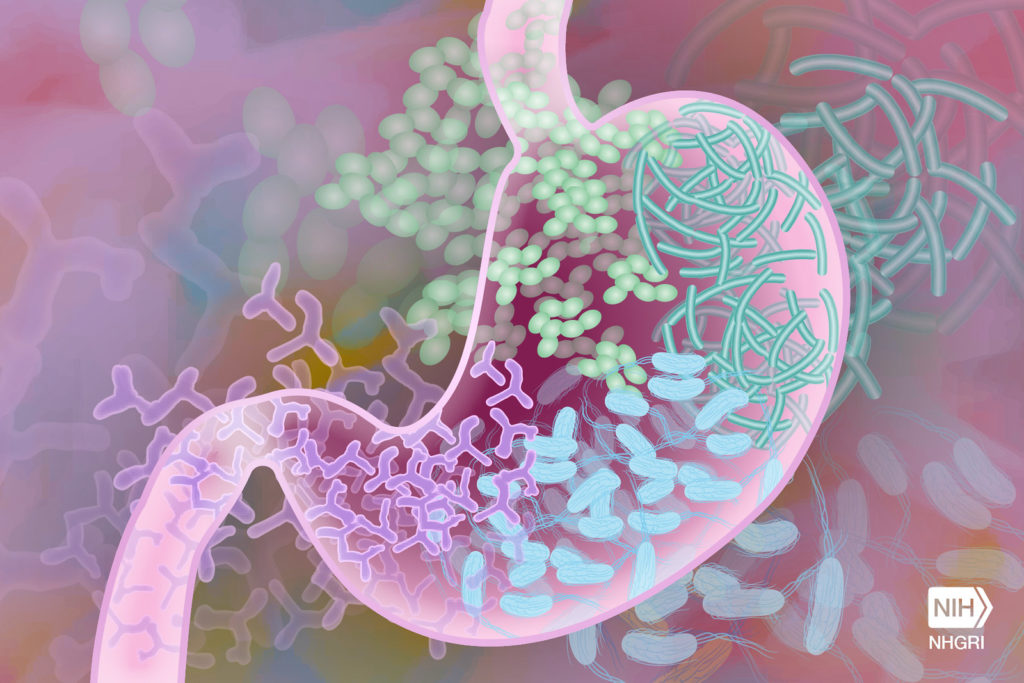Research funded and supported by the NIHR has revealed that symptoms of irritable bowel syndrome (IBS) may be caused by the same biological processes as mental health conditions such as anxiety.

IBS is a common condition worldwide, affecting around 1 in 10 people. The condition causes a wide range of symptoms including abdominal pain, bloating and bowel dysfunction that can significantly affect people’s lives. The condition often runs in families and is also more common among people who are prone to anxiety. The causes of IBS are not well understood.
An international research team, including researchers from the Oxford Biomedical Research Centre (BRC), have now identified several genes that provide clues into the origins of IBS.
The team, which also included researchers from the BRCs in Cambridge, Nottingham and Manchester, studied more than 50,000 individuals with IBS, comparing their DNA with that of healthy people, focusing on individuals of European ancestry.
The results, published in Nature Genetics, showed that overall, heritability of IBS (how much your genes influence the likelihood of developing a particular condition) is quite low, indicating the importance of environmental factors such as diet, stress and patterns of behaviour that may also be shared in the family environment.
However, six genetic differences were more common in people with IBS than in controls. As IBS symptoms affect the gut and bowel, it would be expected that genes associated with increased risk of IBS would be expressed there – but this is not what the researchers found.
Instead, most of the altered genes appear to have more clear-cut roles in the brain and possibly the nerves which supply the gut, rather than the gut itself.
Researchers also looked for overlap between susceptibility to IBS and other physical and mental health conditions. They found that the same genetic make-up that puts people at increased risk of IBS also increases the risk for common mood and anxiety disorders such as anxiety, depression and neuroticism, as well as insomnia.
However, the researchers stress that this doesn’t mean that anxiety causes IBS symptoms or vice versa. The study shows that these conditions have shared genetic origins, with the affected genes possibly leading to physical changes in brain or nerve cells that in turn cause symptoms in the brain and symptoms in the gut.
The study also found that people with both IBS and anxiety were more likely to have been treated frequently with antibiotics during childhood. The study authors hypothesise that repeated use of antibiotics during childhood might increase the risk of IBS (and perhaps anxiety) by altering the ‘normal’ gut flora (healthy bacteria that normally live in the gut), which in turn influence nerve cell development and mood.
Current treatments for IBS vary widely and include dietary changes, prescription medications targeting the gut or brain, or behavioural interventions. The research highlights the close relationship between brain and gut health and paves the way for development of new treatments.